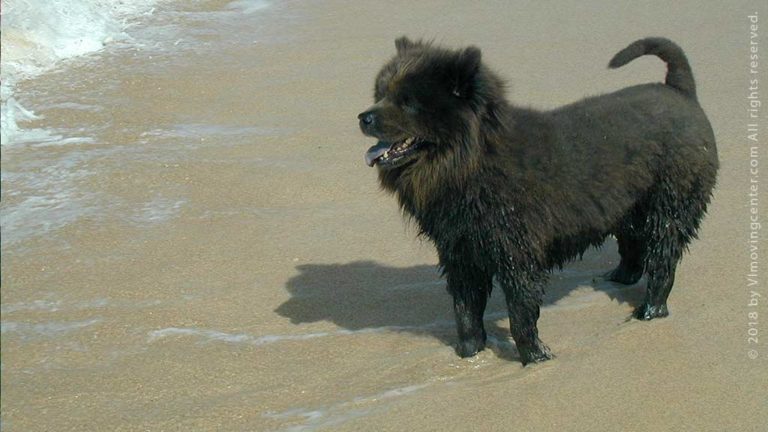
Quarantine
The Virgin Islands does not have any quarantine requirements. Pets traveling to the United States mainland from the Virgin Islands also will not require quarantine.
Health Certificates
A health certificate from your veterinarian is necessary, it should state that the animal has not been exposed to any communicable diseases, is healthy and when rabies shots are applicable to your pet that the shots are up to date. This certificate should be prepared within 10 days of travel. Rabies shots are considered up to date if they have been administered within 6 months prior to travel, and only for animals older than 12 weeks.
Have these documents readily available when you are traveling.
Import Permits
Birds, Ferrets, Sugar Gliders, Snakes, Other Unusual Animals
Some animals require import permits, these include but are not limited to birds, ferrets and sugar gliders. You are required to submit an application ($25 fee) to the Department of Agriculture; the application must also be approved by the Division of Fish and Wildlife. The process can take a week to two weeks. Contact the Department of Agriculture at (340) 774-5182 for more information and to request the application forms.
Do to public health and environmental concerns importing pet snakes into the territory is not allowed. This includes all types of snakes.
Transportation of your Pet
Contact your air carrier for complete details on what pets they allow, how many, weight/size restrictions, travel restrictions based on time of year/temperature, types of carriers and their general policies regarding transportation of animals.
If your pet is small enough to fit into an approved carry on pet carrier then usually you can travel with your pet. Pets that are not hand carried into the plane will typically travel in a climate controlled baggage space of the airplane. In order to insure the safety and comfort of your pet try your best to get a non-stop flight. Transfers, delays, large airports can be traumatic and hard on a pet. Be sure to label your carrier and put signs like “live animal”, “pet dog” or “my name is ____, please be nice to me”.
It is a good idea to prepare your pet for being in the carrier if they are not used to it. For several weeks before the trip, place the carrier in an area they go often, put some toys in the carrier and allow your pet to play in the carrier so that they can become accustomed to it. Do not leave toys in the carrier when you are traveling, they may become hazardous as your pet is transported.
Some very large dogs are not allowed on the aircraft but can be transported by air cargo. Contact the airlines that service the USVI to get details. When traveling with a large dog, try and get a direct flight rather then one with a stop over in Puerto Rico. The commuter planes from Puerto Rico to St. Thomas and St. Croix are small and generally don’t have room for a large dog carrier. Ask a lot of questions of your airline to find the best travel route for your pet.
Birds have particular regulations for travel, some are not allowed – contact your airline for details.
Travel restrictions during various seasons exist, primarily due to extreme temperatures that might negatively affect pets while on the ramps at airports. Call the airlines and find out what dates they allow pet transportation.
Protecting your Pet Dogs & Cats in the Islands
Heartworm is a frequent problem for pets; it might be a good idea to have your pet on preventative medication the entire year. You might want to test your pet for heartworm before traveling and have your pet put on preventative heartworm medication before coming to the Virgin Islands as a precautionary measure. Cats also can get heartworm, so don’t forget to protect them as well. Other pet pests are ticks and fleas, and they are around all year round. Once living on islands do frequent checks of your pet for ticks and fleas. Erlichiosis or “tick fever” is transmitted by these pest and can be deadly if left untreated. Preventative measures include having your pets treated monthly for fleas and ticks, keeping your pets living area clean and free of pest and keeping your yard clean, grass and bushes low. Other things to be aware of: road traffic – cars, neighborhood dogs, neighbors who might not like animals, people in general. Some homes are close to the road and pets might run out into the road and quickly become a causality. Neighborhood dogs, stray or owned might pose a treat for pet cats and dogs; as territorial fights might ensue. There are problems with some residents poisoning dogs and cats because they don’t like animals or perhaps because they have livestock and don’t want dogs in their yard. Locals typically are scared of dogs so be aware of this when walking your pets; some people might not find your pet dog as cute and friendly as you know he/she is.
The islands are welcoming to animals, however you have a responsibility to make sure they adapt to the islands. The weather here makes worms more likely, water more necessary and care greater. Although many locals leave animals outside the house – this invites danger. Frogs, centipedes, passing cars are threats to animals. If you take the measures to make it safe for your pets the islands will be a fine place for them.
ADOPTING DOGS & CATS
You can adopt pets once on island from one of the Animal Shelter listed below:
On St. Croix Visit the St. Croix’s Animal Shelter
On St. John Visit the Animal Care Center of St. John
On St. Thomas Visit the St. Thomas Humane Society

